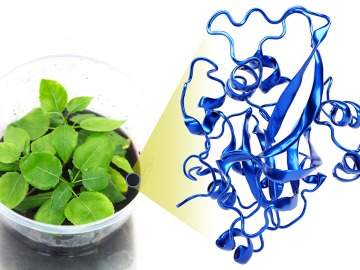Filter News
Area of Research
News Topics
- (-) Decarbonization (2)
- (-) Transportation (2)
- 3-D Printing/Advanced Manufacturing (2)
- Advanced Reactors (1)
- Artificial Intelligence (2)
- Big Data (5)
- Bioenergy (10)
- Biology (15)
- Biomedical (5)
- Biotechnology (2)
- Chemical Sciences (1)
- Clean Water (3)
- Climate Change (10)
- Composites (1)
- Computer Science (18)
- Coronavirus (3)
- Critical Materials (3)
- Energy Storage (1)
- Environment (20)
- Exascale Computing (1)
- Frontier (1)
- Fusion (1)
- Grid (2)
- High-Performance Computing (6)
- Hydropower (3)
- Machine Learning (2)
- Materials (2)
- Materials Science (1)
- Mercury (1)
- Nanotechnology (1)
- Nuclear Energy (1)
- Polymers (2)
- Quantum Computing (4)
- Quantum Science (3)
- Simulation (2)
- Space Exploration (1)
- Summit (6)
- Sustainable Energy (10)
Media Contacts
Oak Ridge National Laboratory scientists led the development of a supply chain model revealing the optimal places to site farms, biorefineries, pipelines and other infrastructure for sustainable aviation fuel production.

ORNL researchers have identified specific proteins and amino acids that could control bioenergy plants’ ability to identify beneficial microbes that can enhance plant growth and storage of carbon in soils.

Oak Ridge National Laboratory scientists have created open source software that scales up analysis of motor designs to run on the fastest computers available, including those accessible to outside users at the Oak Ridge Leadership Computing Facility.




